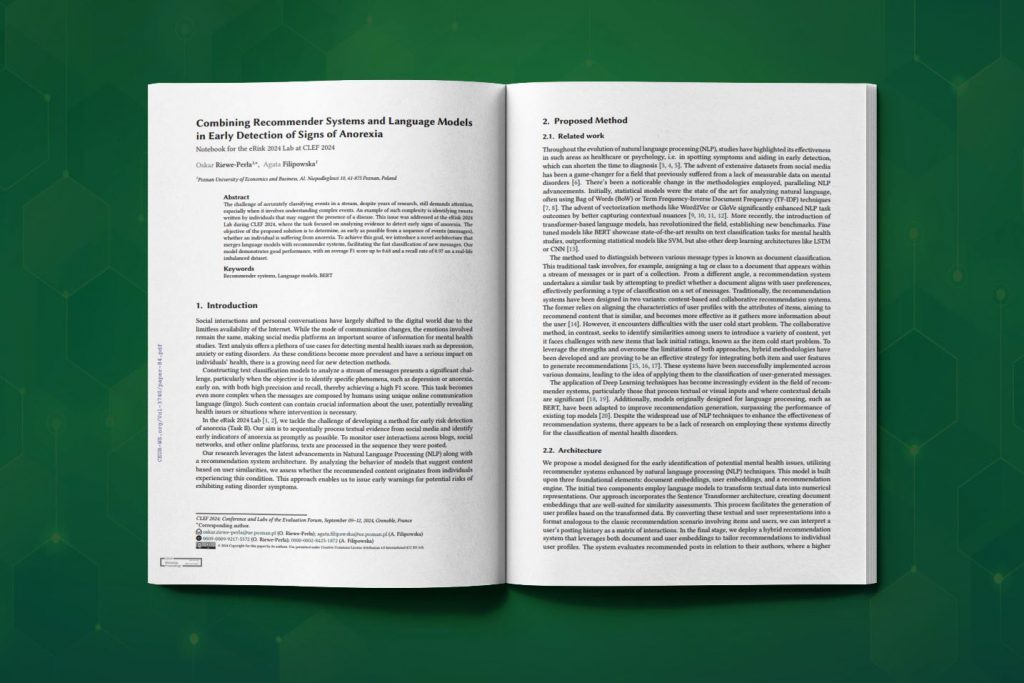
An article by our scientists entitled “Combining Recommender Systems and Language Models in Early Detection of Signs of Anorexia” has been published in open access. The work describes the approach that obtained the best result according to the ERDE metric in the international competition for early risk prediction on the Internet – eRisk 2024. Authors of the work: Oskar Riewe-Perła and Prof. Agata Filipowska.
The method described in the publication uses the latest achievements in the field of natural language processing (NLP) and the architecture of recommender systems. By analyzing the behavior of models suggesting content based on user similarities, this method assesses whether the recommended content comes from people experiencing anorexia. This approach allows for issuing early warnings about the potential risk of eating disorder symptoms. The method described in the paper achieved the best result according to the ERDE (Early Risk Detection Error) metric in the eRisk 2024 competition. This metric takes into account both the precision of the results and the time needed to alert about the possibility that a given person may suffer from anorexia. This aspect was a key element of the competition and has a real impact when using early warning systems.
The eRisk competition is one of many challenges organized as part of the CLEF conference (Conference and Labs of the Evaluation Forum), which since 2000 has been attracting scientists and specialists from around the world interested in the development of data processing and information retrieval technologies.